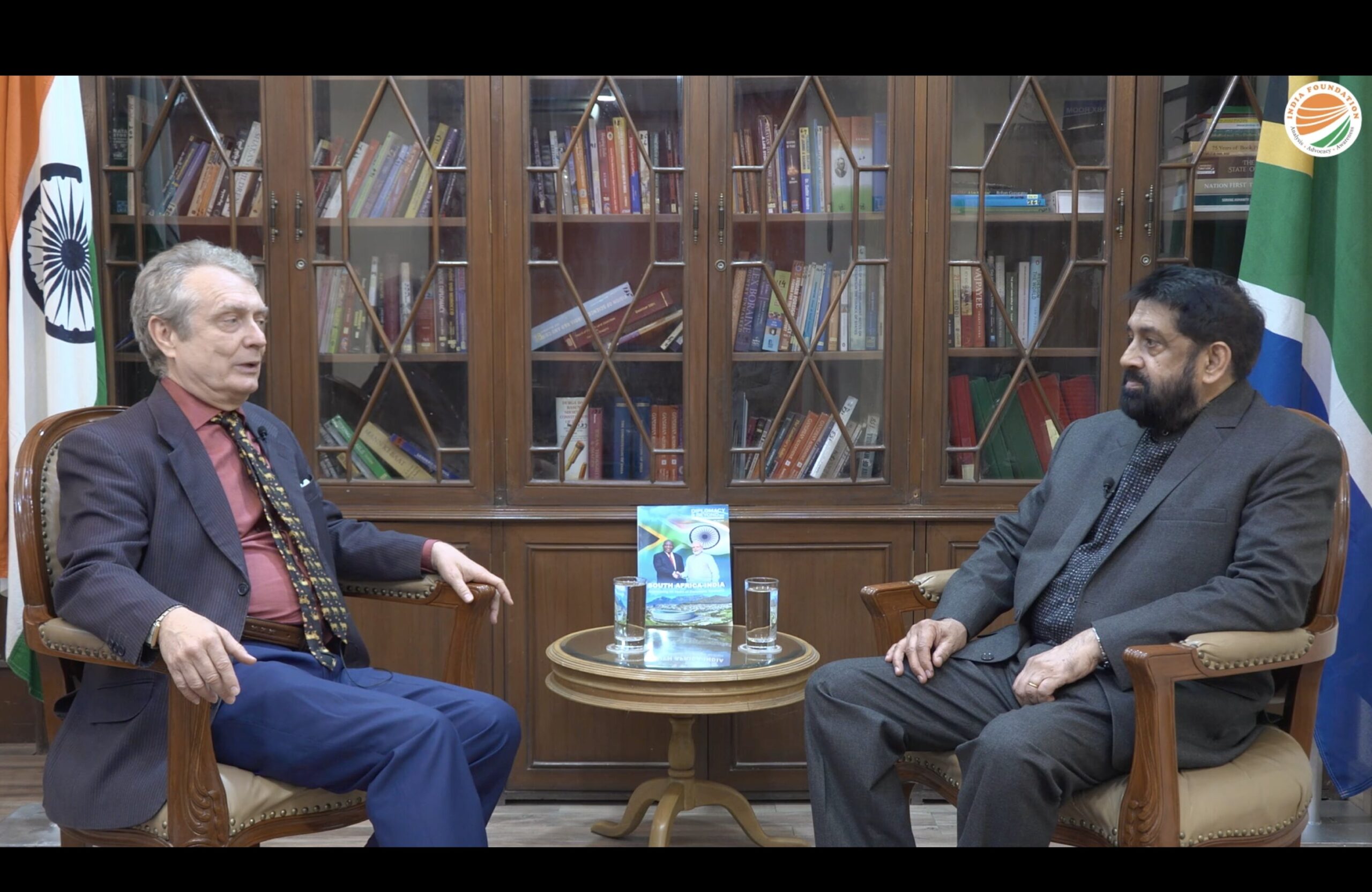Many might have seemed surprised by the fall of the Awami League government led by Sheikh Hasina on 5 August 2024. Still, those closely observing Bangladeshi politics recognised the signs well in advance. By 2021, it was evident that Sheikh Hasina was nearing the end of her tenure. Since 2020, two critical areas of control have begun slipping away: her political organisation and economic policy-making.
Control of her organisation shifted to her party’s General Secretary, who was politically incompetent and focused more on consolidating his position than on strengthening the party. Consequently, many qualified political leaders were marginalised, causing numerous dedicated leaders and activists to become alienated from the organisation and ultimately rendering them inactive. Concurrently, in the economic policy-making sphere, Sheikh Hasina became reliant on a small group of businessmen who assumed control of key ministries, such as finance and commerce, through their influence and wealth. These individuals appointed an unqualified central bank governor at their discretion and initiated several redundant projects funded by exorbitant foreign loans solely for legal and illicit profit. Similarly, the trade of essential goods was monopolised by this cartel. As a result, the development trajectory and stability of consumer goods markets that Sheikh Hasina’s government had maintained until 2018 shifted drastically, and economic activities became largely stagnant during the year-long impact of COVID-19.
Since 2020, the escalating prices of essential commodities began generating resentment among the general populace, and this discontent was exacerbated by continuous social media reports of irregular loans taken by businessmen close to Sheikh Hasina. There were also widespread allegations on social media that these loans were being laundered abroad. In an attempt to quell this social media uproar, Sheikh Hasina made an ill-conceived decision to turn all but two newspapers, all digital media platforms, and private TV channels into government mouthpieces. Consequently, the public increasingly turned to those two newspapers and social media for news.
Opposition groups, particularly Jamaat-e-Islami Bangladesh, effectively capitalised on this opportunity. They established a robust social media network using their expatriate members and extensive funding. Moreover, Jamaat-e-Islami’s strategists, having anticipated the likely execution of their key leaders in 2012, adopted a decade-long plan. They focused on providing community services and religious instruction, targeting women and adolescents, with an approach designed to align them ideologically with Jamaat-e-Islami.
On the other hand, the youth vote that brought Sheikh Hasina to power in 2008 led to the formation of the Ganajagaran Mancha, a movement aligned with the core politics of the Awami League. Although its impact is now a topic of history, neither Sheikh Hasina nor several senior leaders favoured this platform because of its young participants gaining popularity so quickly, fearing that these youths could soon become their rivals within the party. Sheikh Hasina, too, became wary of the Ganajagaran Mancha as a political threat to her legacy, believing that someone from this platform could emerge as a future leader, like her father, Sheikh Mujib—a simple young man who became a national leader—or as a competitor to her son or daughter.
To prevent political competition for her legacy, Sheikh Hasina began eliminating competent young leaders from party leadership and halted college and university student elections during her 16-year rule. Her main political rival, Khaleda Zia, also shared this stance, keeping these elections suspended during her tenure to secure her political legacy. Thus, she made no demands regarding this issue despite numerous demands from her Bangladesh Nationalist Party (BNP) during Hasina’s rule. The mutual consensus between Sheikh Hasina and Khaleda Zia created opportunities for the student wing of Jamaat-e-Islami, Islami Chhatra Shibir, which infiltrated both major political student organisations—the Chhatra League of Sheikh Hasina’s Awami League and the Chhatra Dal of Khaleda’s BNP—to cultivate their leaders and activists within these groups.
In response to the emergence of the Ganajagaran Mancha in support of Hasina’s politics in 2012, a group named Hefazat-e-Islam was formed with direct assistance from Khaleda Zia’s party and the outside forces in Bangladesh. It was a coalition based on Qawmi madrasas that denounced the Ganajagaran Mancha as atheistic and launched violent street movements. Initially, Sheikh Hasina took a tough stance against Hefazat-e-Islam but later established amicable relations in exchange for financial and other incentives, following the advice of her then-military secretary, who even publicly participated in Hefazat’s gatherings. At their recommendation, the curriculum was increasingly Islamised, and numerous madrasas were established, allowing Hefazat to grow under government patronage.
Another major transformation occurred in Bangladeshi politics during this time. Ideologically, Hefazat-e-Islam opposed Jamaat-e-Islami’s ideology. However, since Sheikh Hasina’s then-military secretary was a follower of Jamaat-e-Islami, he succeeded in bridging the ideological divide between these two Islamist organisations to work against Sheikh Hasina in secret.
In line with their strategic plan, Jamaat-e-Islami launched a ten-year program in 2012 to promote “Dawati”—service and religious instruction. While this program was supposed to run until 2022, by 2020, just eight years into the plan, Jamaat-e-Islami’s support base had expanded to become four times stronger than in 2012, surpassing any previous political strength. In 2022 and 2023, those closely monitoring Bangladesh’s political landscape observed an unprecedented rise in support for Jamaat, particularly among a segment of the youth, women, and even academics and intellectuals.
Moreover, Jamaat exploited this opportunity since Sheikh Hasina accommodated Hefazat by aligning social and state policies with religious doctrines. Through Hefazat, they managed to instil their so-called religious discipline within society, especially in higher educational institutions and among families of Awami League members, creating a significant “soft” support base for Jamaat beyond its dedicated followers over the last 12 to 13 years.
Thus, as extremists became more organised and economic management deteriorated, pushing commodity prices beyond people’s reach, a major “time bomb” began ticking in Bangladesh. Adding to this was the lack of opportunity for citizens to vote in local government and general elections since 2014. While there was participation in local government, Awami League leaders consistently exerted undue influence to ensure their candidates’ victories, weakening the grassroots organisation and making ordinary people part of this ticking time bomb.
Those observing Bangladesh’s politics with impartiality anticipated since 2023 that the explosion of this “time bomb” was just a matter of time. Conversely, Sheikh Hasina believed she could neutralise it through administrative power. Those who know Bangladesh’s history—and even Sheikh Hasina herself should have recognised from her past experiences—understand that in a small, ethnically homogeneous country like Bangladesh, attempting to defuse such a bomb through coercive measures is likely to backfire. Historically, during widespread discontent in Bangladesh, the most organised institution—the military—has always withdrawn its support for the ruling power. The situation was even more precarious this time, and it is a mystery why Sheikh Hasina and her local and international allies either failed to consider it or lacked accurate intelligence.
By the end of July, it was apparent that Sheikh Hasina’s government was on borrowed time, and by August 3rd, it was clear that power was no longer in her hands. However, what transpired on the morning of August 5th remains ambiguous to political observers. Nevertheless, since this outcome seemed inevitable, there has been little need to focus on the specifics.
Ultimately, the “time bomb” Sheikh Hasina was sitting on exploded when military support was withdrawn. Unlike previous times in Bangladesh, when political transitions occurred, the streets were controlled by political parties. This time, however, they were under the control of extremist forces in various disguises, making the events following Sheikh Hasina’s fall far more severe and uncertain than ever before.
Many knew Sheikh Hasina was about to leave the country on August 5th. However, most people officially learned of her departure from the army chief’s address to the nation, where he stated that Sheikh Hasina had resigned from her position as Prime Minister. It was later revealed that she had left without formally resigning, making her technically still the Prime Minister according to the constitution. The current government in Bangladesh, which emerged under the “doctrine of necessity” (resembling a ruling by the Pakistani court in 1958), lacks constitutional legitimacy despite wielding power through a muscle-flexing Supreme Court ruling.
This government has no constitutional or legal legitimacy. Even if the dissolved parliament was flawed due to election irregularities, the president’s dissolving it and forcing the Speaker’s resignation were ultra vires to the constitution.
While the army chief reassured the people in his address, he did not declare martial law or assume power by having the president declare emergency law. Instead, in the three days of governmental vacuum, attacks on homes of Hindu communities and other ethnic minorities took place, resulting in numerous deaths. Official reports indicate that only nine Hindus were killed in these attacks, but over 10,000 houses belonging to the Hindu community were burned. In the current state of Bangladesh, there is no opportunity to gather accurate information because any attempt to do so could be fatal.
Immediately after Sheikh Hasina left the country, over 440 police stations were attacked by Jamaat, Hefazat, and other extremist groups. Officially, it was stated that 44 police officers were killed in these attacks, but a former Secretary, speaking on condition of anonymity, claimed that around 4,500 police officers had been killed. Experts believe that the perpetrators of these killings were trained as they employed methods like amputation, beheading, and hanging corpses, reminiscent of Taliban techniques in Afghanistan.
In the second week of October, all individuals involved in the killings from August 5th to 15th were granted indemnity through an executive order from the Ministry of Home Affairs. This means there will be no justice, not only for the murdered police officers but also for the killings of minorities and the looting of their property. Those responsible have been exempted from any legal action.
Additionally, 12 other High Court judges were forcibly made to resign beyond just the Appellate Division of the Supreme Court. The Chief Justice of the Supreme Court, who was also forced to resign, now faces multiple murder charges, and his bank accounts have been frozen. A series of murder cases have also been filed against journalists, writers, and historians.
Moreover, the deaths that occurred during the movement to overthrow Sheikh Hasina’s government have been labelled as genocide, and the perpetrators are being tried in court for war crimes. The chief public prosecutor of this court was a joint secretary of a Jamaat offshoot (AB Party) and had served as a lawyer for war criminals tried under Sheikh Hasina’s rule. The chief judge appointed to this court was a collaborator opposed to Bangladesh’s independence.
Furthermore, the family of the current head of the government, Dr Yunus, had collaborated with the Pakistani army during the Liberation War of 1971. Dr. Yunus’s younger brother was arrested in 1972 under the Collaborators Act as a Pakistani collaborator and remained imprisoned until Sheikh Mujib’s general amnesty. The fathers of two other advisors were also direct collaborators. Hefazat’s leader is an advisor to the government, while the primary driving force behind the government is Jamaat-e-Islami Bangladesh.
It is natural to question what relations neighbouring countries will maintain with such a government, which is constitutionally illegitimate and heavily influenced by pro-Pakistan fundamentalists. Moreover, even before taking charge, the head of this government made undiplomatic remarks about India’s Seven Sister states, remarks that no previous legitimate or illegitimate government in Bangladesh had made.
Such a government must perpetuate extremism among its core supporters to stay in power. The more unrest they can incite in India’s Seven Sister region, the more frenzied their base will become. India may assume that providing essential goods to Bangladesh, which is currently in a crisis, could make the country dependent on them and divert attention from the Seven Sisters. However, the reality is that the government’s principal capital is anti-India sentiment, centred around the Seven Sisters. Additionally, the players who supplied arms to insurgents in the Seven Sister region and attacked India’s internal security have been released by the government without regard for the law. None of them are likely to remain inactive.
Matarbari Port in the Bay of Bengal was planned as a game-changer for the development activities surrounding India’s Seven Sister region, with benefits anticipated for Bangladesh, India, Nepal, Bhutan, Japan, the US, Australia, and several Southeast Asian countries. However, instead, an illegitimate government is now in power in Bangladesh, which has dismantled the police, civil, and judicial administrations. They attempt to resolve every problem through mob violence rather than the law. Minorities, political dissidents, businesspeople, and even ordinary citizens are barely surviving under an unofficial jizya tax. The government claims there is no minority persecution at present, but in reality, minorities are surviving by paying this unofficial jizya to fundamentalist supporters of the government. In a country where all institutions have collapsed, and law and order have reached rock bottom, there is no logical basis to hope Matarbari Port could become an economic game-changer.
Recently, when the UN’s local representative met with Mr. Yunus, he suggested creating a safe zone in Arakan for the Rohingya, akin to Hamas in Gaza. Yunus, who is considered the mastermind behind Sheikh Hasina’s ousting, was recently seen in New York meeting with the terrorist wing of Hamas, the Young Muslims of New York, during his UN visit. Pictures of this meeting have surfaced on social media, and their authenticity has been verified through fact-checking.
The current illegitimate government of Bangladesh wants to create another permanent conflict zone near the Chattogram border, Arakan’s Sittwe Port and India’s Seven Sister states. There are also reports of increased arms flow to the Pakistan-backed Rohingya terrorist organisation ARSA. Moreover, during the anti-Hasina movement, it was noted that many protesters were shot in the back. Initially, Brigadier Sakhawat, who headed the Ministry of Home Affairs, questioned how these weapons had reached the public. After speaking the truth, he was removed from the Ministry.
Overall, Bangladesh is now in a state of profound uncertainty. A significant segment of the country’s youth is radicalised and extremist. If they are not contained strictly, they pose a threat not only to neighbouring countries but also to any nation’s internal security, as evidenced by attacks on Delhi’s Parliament and the US’s 9/11. The dilemma is that if elections are held soon, these radicals could come to power, potentially even more dangerous than in 2001-2006. On the other hand, if the current illegitimate government continues, its fundamentalist core may soon turn to Jihad after stabilising minor crises like commodity shortages. Given these circumstances, global powers concerned with human rights and anti-terrorism, as well as democratic neighbours, must take initiatives to establish a strict governance structure in Bangladesh that can sustain itself long enough to weaken these radical elements. Only then should issues like elections be considered.
Author Brief Bio: Robayet Ahmedis a Former Politician and NGO Worker.





